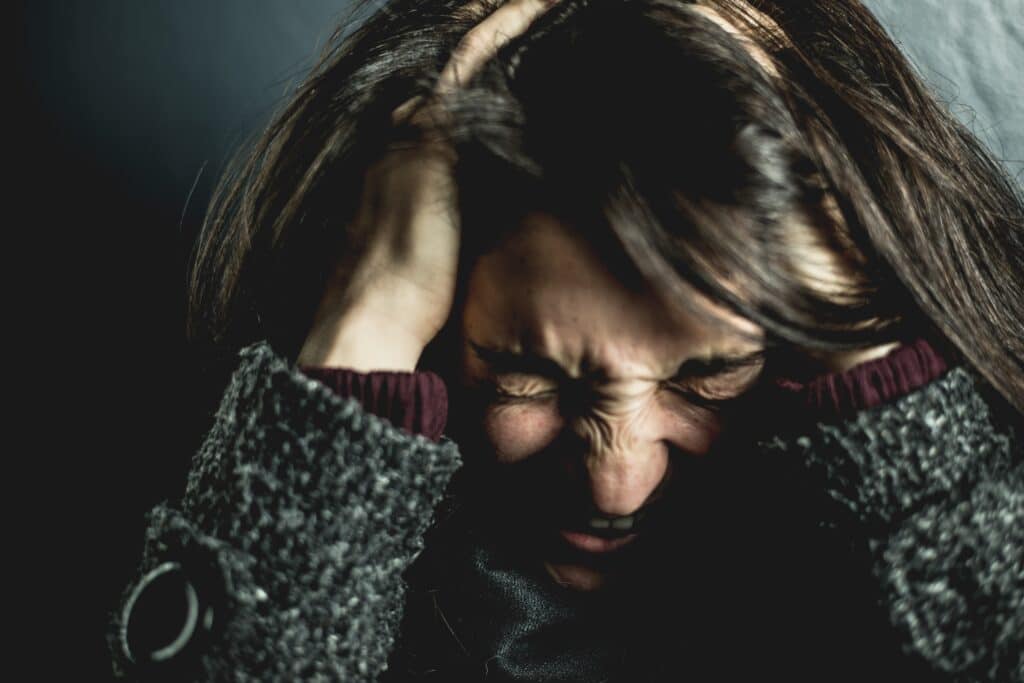Addiction and anxiety often go hand in hand, with one often fueling the other. People who struggle with addiction are more likely to experience anxiety, and those with anxiety disorders are more likely to develop an addiction.
The relationship between these two conditions is complex and can be challenging to understand. However, identifying the connection between addiction and anxiety is crucial in creating effective treatment plans for those dealing with both.
In this blog, we will explore the relationship between addiction and anxiety, the science behind it, and the treatment options available for those who suffer from co-occurring disorders.
Co-Occurring Anxiety and Addiction
Anxiety and addiction often co-occur and can have a complex and interrelated relationship. Anxiety can lead to addiction, as individuals may try to self-medicate and relieve their symptoms through substance use. In turn, substance use can exacerbate anxiety symptoms, creating a vicious cycle. Because of this intertwining, those who suffer from anxiety disorders often find themselves more susceptible to substance abuse.
The Science Behind the Susceptibility
To best comprehend why the two disorders can co-occur so easily, it’s best to have an understanding of the neuroscience underlying both of them.
People who suffer from anxiety disorders may have an increased risk of addiction due to the dysregulation of the brain’s reward and stress systems. Substance abuse causes the brain’s pleasure-producing chemicals to be released, temporarily easing anxiety symptoms.
Over time, the individual using the substance may come to rely on it to manage their anxiety, leading to a substance use disorder. Unfortunately, substance use is not an effective treatment for anxiety disorders, leading to its continuation and mistreatment.
Moreover, certain drugs may produce paradoxical effects by initially decreasing anxiety symptoms but ultimately exacerbating them. Furthermore, prolonged substance abuse can cause alterations in brain structure and function that intensify anxiety symptoms, resulting in a challenging cycle to break. The individual may feel compelled to use the substance to alleviate their anxiety, but it simultaneously exacerbates their symptoms.
How to Treat Co-Occurring Anxiety and Addiction
Treatment for co-occurring anxiety and addiction often involves a combination of medication and psychotherapy. Selective serotonin reuptake inhibitors (SSRIs) and benzodiazepines are commonly prescribed to treat anxiety symptoms, but these medications can also be addictive and should be carefully monitored by medical professionals. Cognitive-behavioral therapy, or CBT, has been found to be effective in treating both anxiety and addiction, as it focuses on changing negative thought patterns and behaviors that contribute to substance use.
When to Seek Help
Although the relationship between anxiety and addiction is intricate and challenging to manage, there are effective treatments available. It’s important for individuals to seek help early on to avoid the development of a more serious addiction and to improve their chances of recovery.
It is essential to address both anxiety and substance use disorder simultaneously in treatment as neglecting either one may lead to a relapse, returning the individual to their initial state. Therefore, a comprehensive and integrated approach is necessary to effectively treat both conditions.
A team of medical professionals with experience and knowledge in both medical and therapeutic fields can be the key to seeing both conditions treated so that the sufferer can become healthy once more.
If you live in Newport Beach and are looking for a team of experienced professionals who can help with both anxiety and substance abuse, reach out to the Northbound Addiction Treatment Center. We offer residential treatment, partial hospitalization, and intensive outpatient treatment options to make finding relief for you or your loved one that much easier.
Author
-

President, CEO & Founder at Northbound Treatment Network
Paul Alexander is the CEO, President & Founder of Northbound Treatment Network in Newport Beach, California. He believes wholeheartedly in transformational leadership, organizational health and effective, fully integrated substance use disorder and mental health treatment. With over 27 years of experience in behavioral healthcare, Paul has extensive knowledge of “in vivo” treatment modalities, clinical development, operations, strategy, marketing and financial planning. He has been widely recognized for his development of collegiate-based residential treatment programs for students in recovery and authored a research study at The University of California confirming this modality’s effectiveness.
Paul’s comprehensive professional experience, willingness to innovate, and emphasis on organizational health are vital factors in Northbound’s continued success. Paul received his Certified Addiction Treatment Specialist training at Saddleback College in Mission Viejo, CA, and was awarded Outstanding Alumni Service Award in 2002. Paul holds a Bachelor of Arts degree in Criminology, Law and Society, Summa Cum Laude, from University of California, Irvine, and a Juris Doctorate degree from Loyola Law School of Los Angeles. Paul currently serves on The National Association of Addiction Treatment Providers (NAATP) board. In addition, he serves on The Family Recovery Foundation board and The CarePossible board in Orange County; both organizations are committed to raising funds for family recovery and treatment for former military personnel. Paul is in recovery himself and lives in Orange County with his wife Silvana and his two young sons, Noah and Dean.







